Maria Anaya Pintor’s Humans of St. Louis Story
March 1, 2021
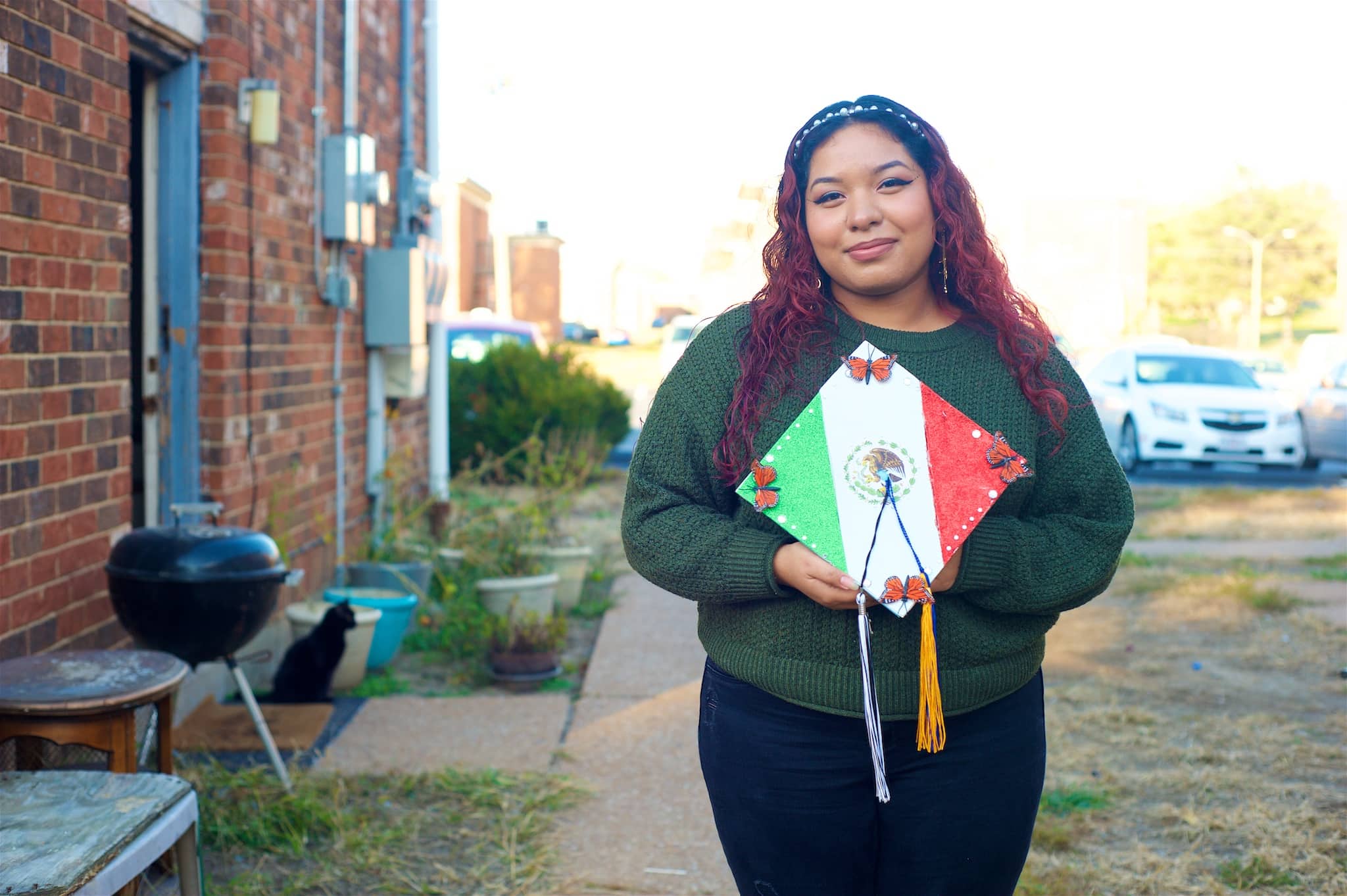
Humans of St. Louis’ co-founder and lead storyteller, Lindy Drew, met with our School Navigator, Maria Anaya Pintor, to hear more about how she came to her position at Navigate STL Schools.
Photostory by Humans of St. Louis / Lindy Drew
A lot of the people in my neighborhood are Hispanic. When the pandemic started, schools and everyone had to work remotely and kids were left without much direction on what to do next. Sometimes there isn’t good communication between schools and parents, mostly because there aren’t enough translators. So I stepped in to help get students technology, set up hotspots, and teach kids and parents how to navigate it all. If they needed me again, I could be there to help. I got them started so they could do things on their own every day until the semester ended. And if we continued having to be remote, they would understand how the whole process went.
Then a former high school teacher who helped me, when I was writing essays for scholarships and trying to get into college, sent me a link on Indeed. She said, “Hey, this company’s looking for someone bilingual. I know you help out a lot in your community. You should apply.” So I did and I got the job. As a Navigator, I’m here to help families understand the STL Navigate Schools website and what some of the data means that’s been uncovered and to facilitate their process to find more school options here in St. Louis. Part of the reason why I was able to go to college and why I have this job is because I received a lot of help throughout my life from different programs and people just looking out for me. So I’d like to see families understand they have options and resources when it comes to the schools they choose for their children here.
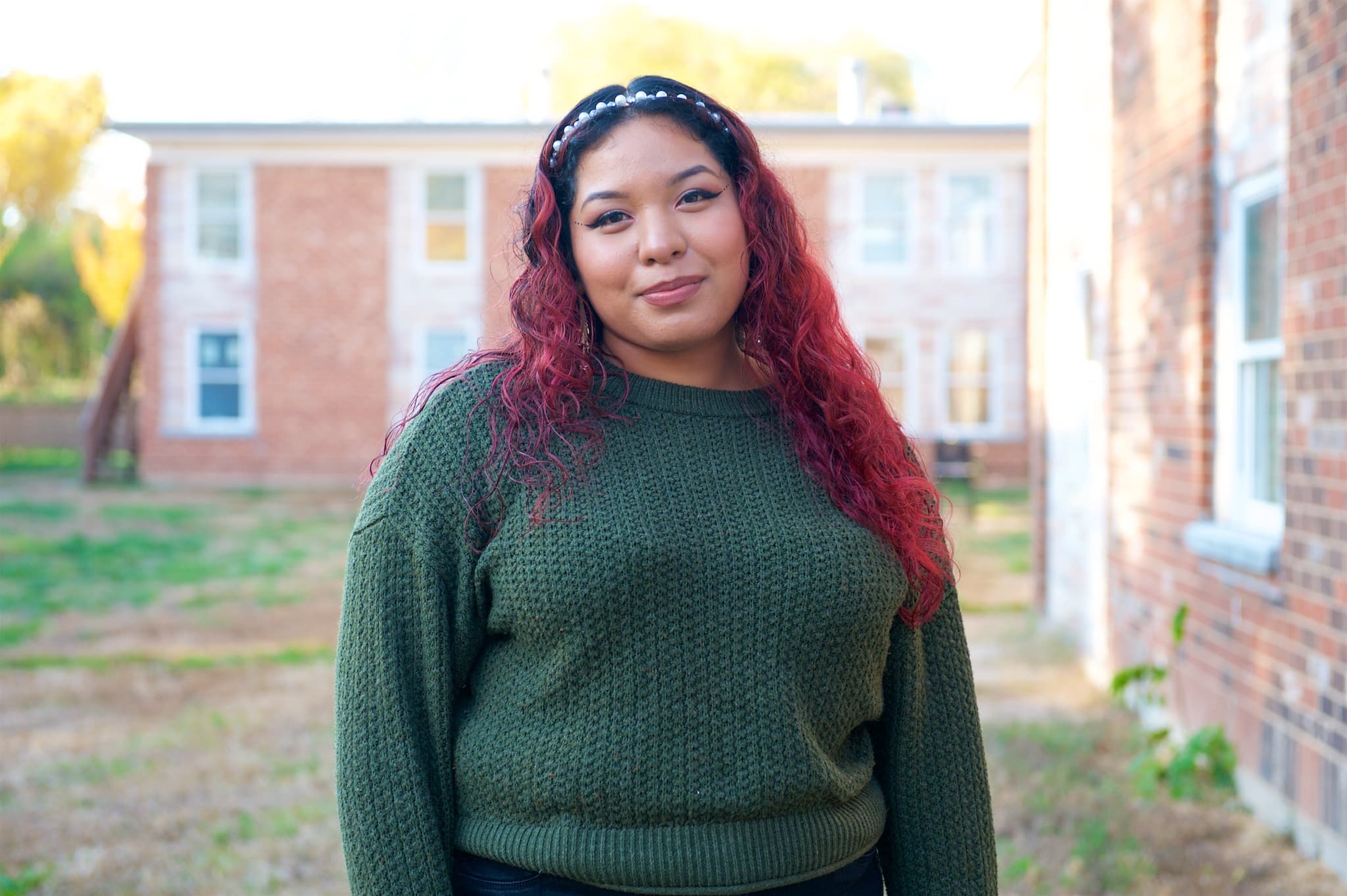
I really want to give back and I feel like Navigate STL Schools is a great place to start. I went to Mason Elementary and I was the first kid from my neighborhood to go there. Everyone else kind of followed. Then I went to Busch Middle School and graduated high school from Gateway STEM. I didn’t have my green card yet and didn’t qualify for DACA. But I knew if I got my green card, the first thing I would do would be to start college. I had to wait three years until I could.
Now I’m in my first year as a freshman at Webster University and there are so many things I wanted to study. I started off as a journalism major and changed halfway to film and television production. Then I decided I was going to study education. I think I’m the first child from this neighborhood to go to college, period. That’s really exciting because I hope that every kid who’s from where I’m from and who followed in my footsteps goes to college or even a vocational school.
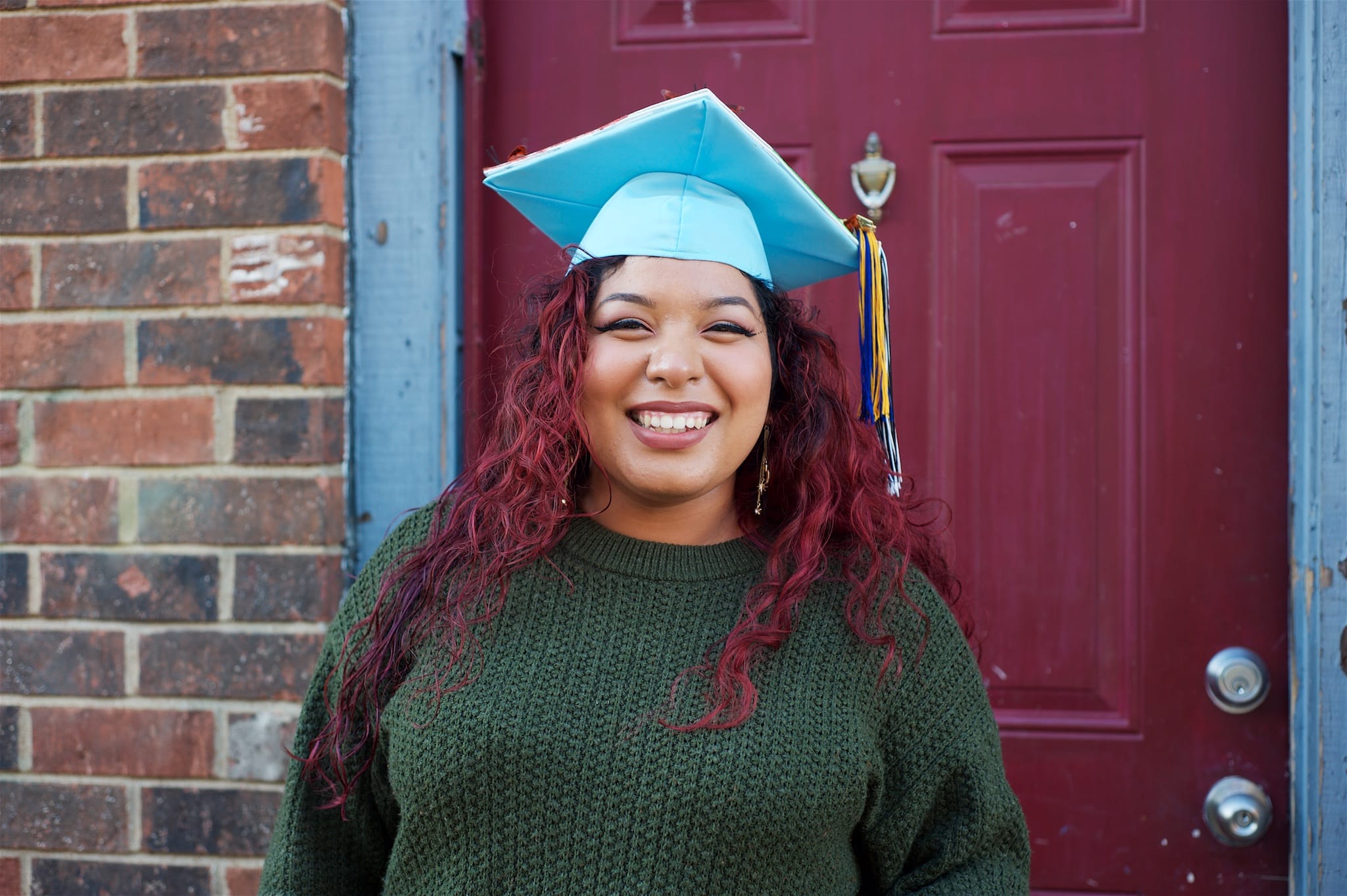
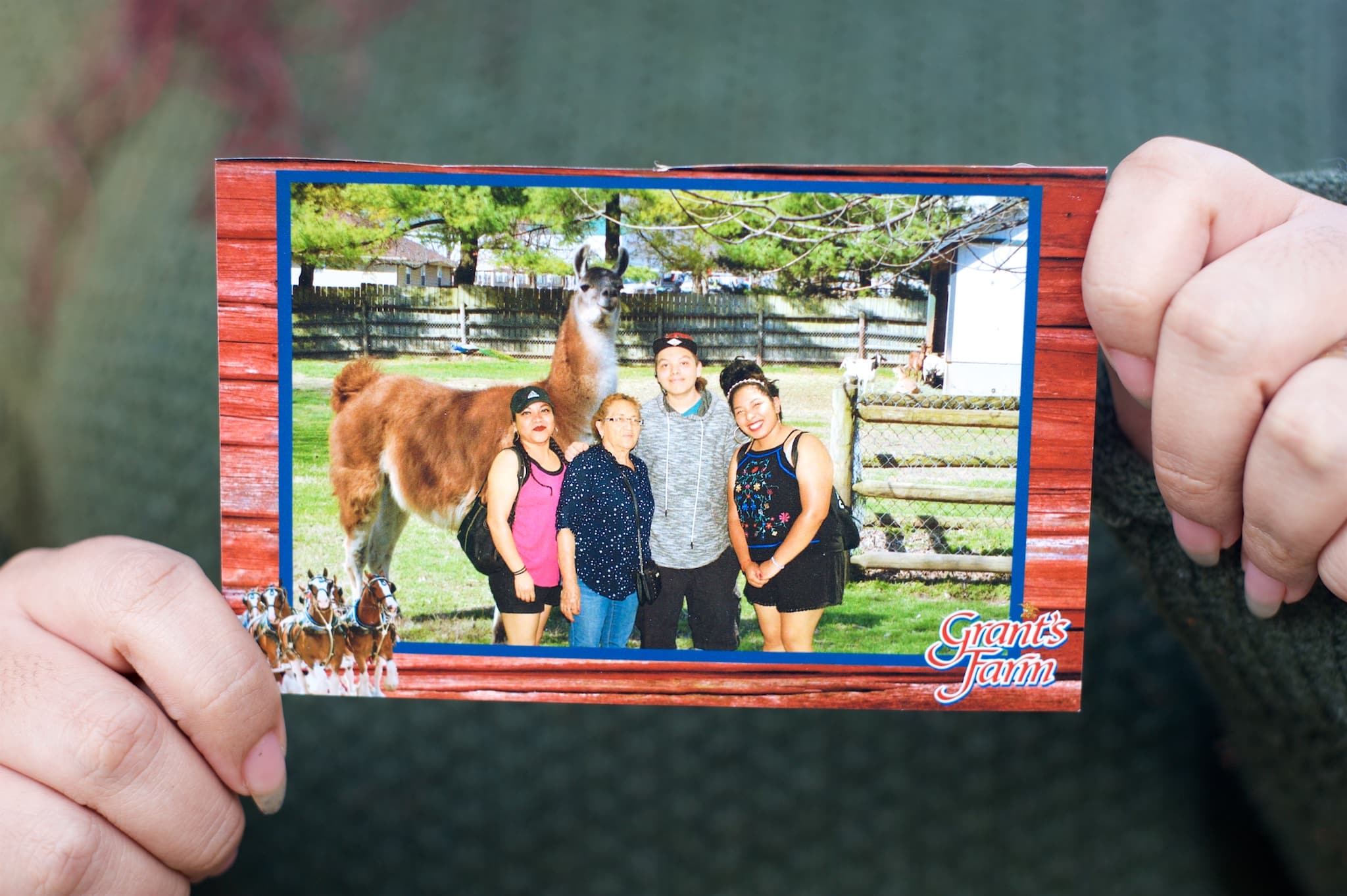
The highest grade my mom made it to was probably the equivalent of what middle school is here. I don’t know much about my dad except that he was from a small town and I don’t think he went past middle school either. My brother graduated and he’s going to college as of last year. And my brother and I are also the first to graduate high school or even pursue higher education in our family.
I live by Skinker and Page in an apartment complex. The kids I help out there now would also be the first in their families to graduate college. So I want to make sure they follow through and continue their education. I was one of the first families who migrated to around here and one of the first who went off to SLPS. When I started school, there weren’t school buses that came to this area. Being the first to do those things in my neighborhood, I want to keep helping to guide other kids if they want to follow along in my footsteps.
I want families who live near me to understand that there are more options than just their zone school nearby. The kids here don’t have to go to the closest neighborhood school. And between St. Louis Public Schools or charter schools or other private schools, it’s difficult to understand just how the school systems in St. Louis work. The language barrier is always the biggest problem.
As a Navigator, my job is to help parents understand their options and translate for them, not to help them fill out paperwork like applications. Even when families know they have options, they won’t pursue them further. Even with school translators, I wish schools communicated with families more. And I wish they’d let parents know that they have a voice and their opinions matter as opposed to just, “This is the way things are and you have to deal with it.”
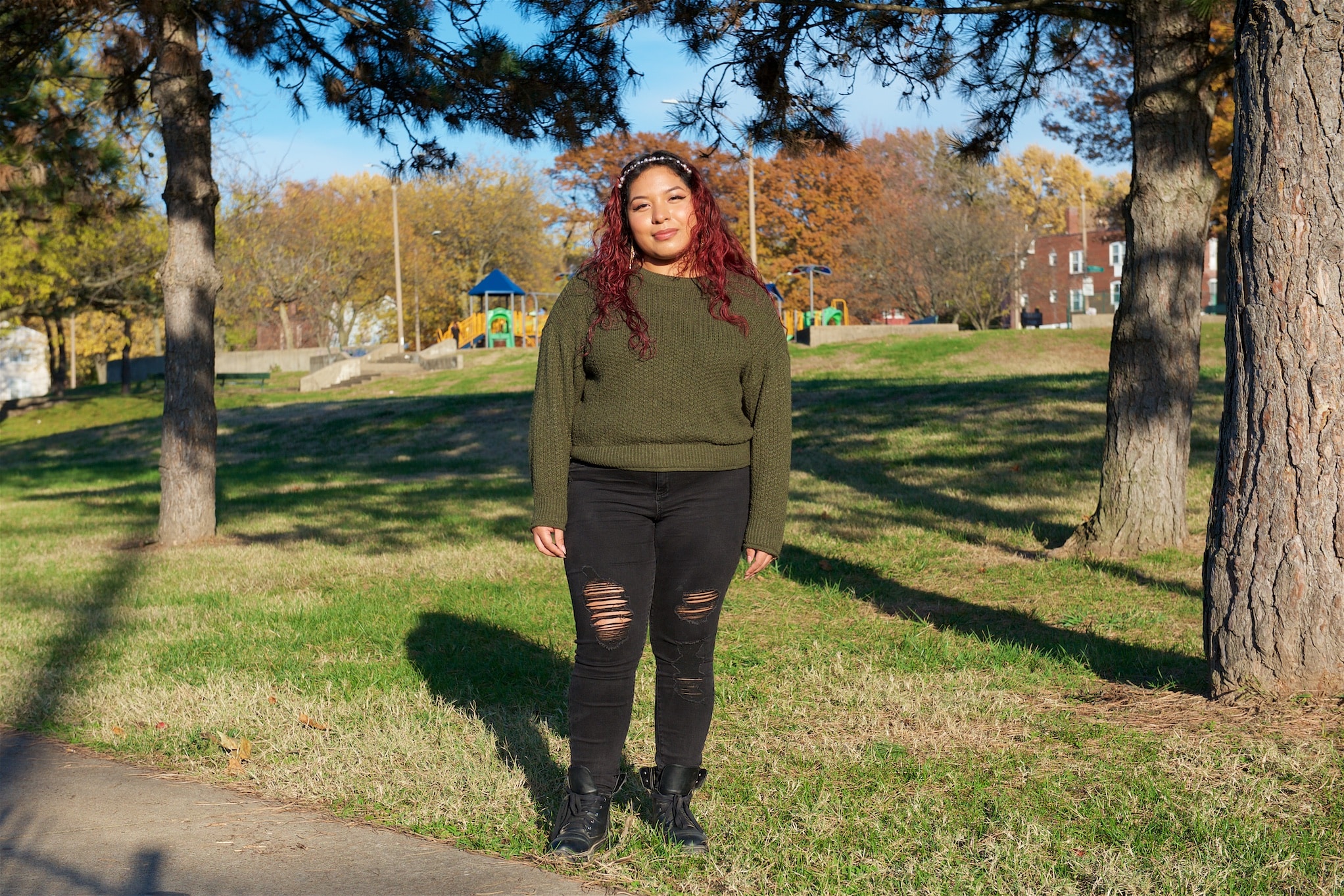
Why are you so passionate about education?
Where I live, a lot of people can’t read or write. They migrated here from really poor places and now they fully depend on their children, like my mom does. And that’s specific to the bilingual community. When I was 10 or 12 years old, I had to translate legal documents for her. So I enjoy being able to help other students deal with similar things. Plus, I was impacted a lot by the teachers I had. So it’s important to me to teach others through my experiences, even how to be a good individual and how to treat others. Like, “These are your classmates, but they are also people who live near you and will continue being around you for years to come.”
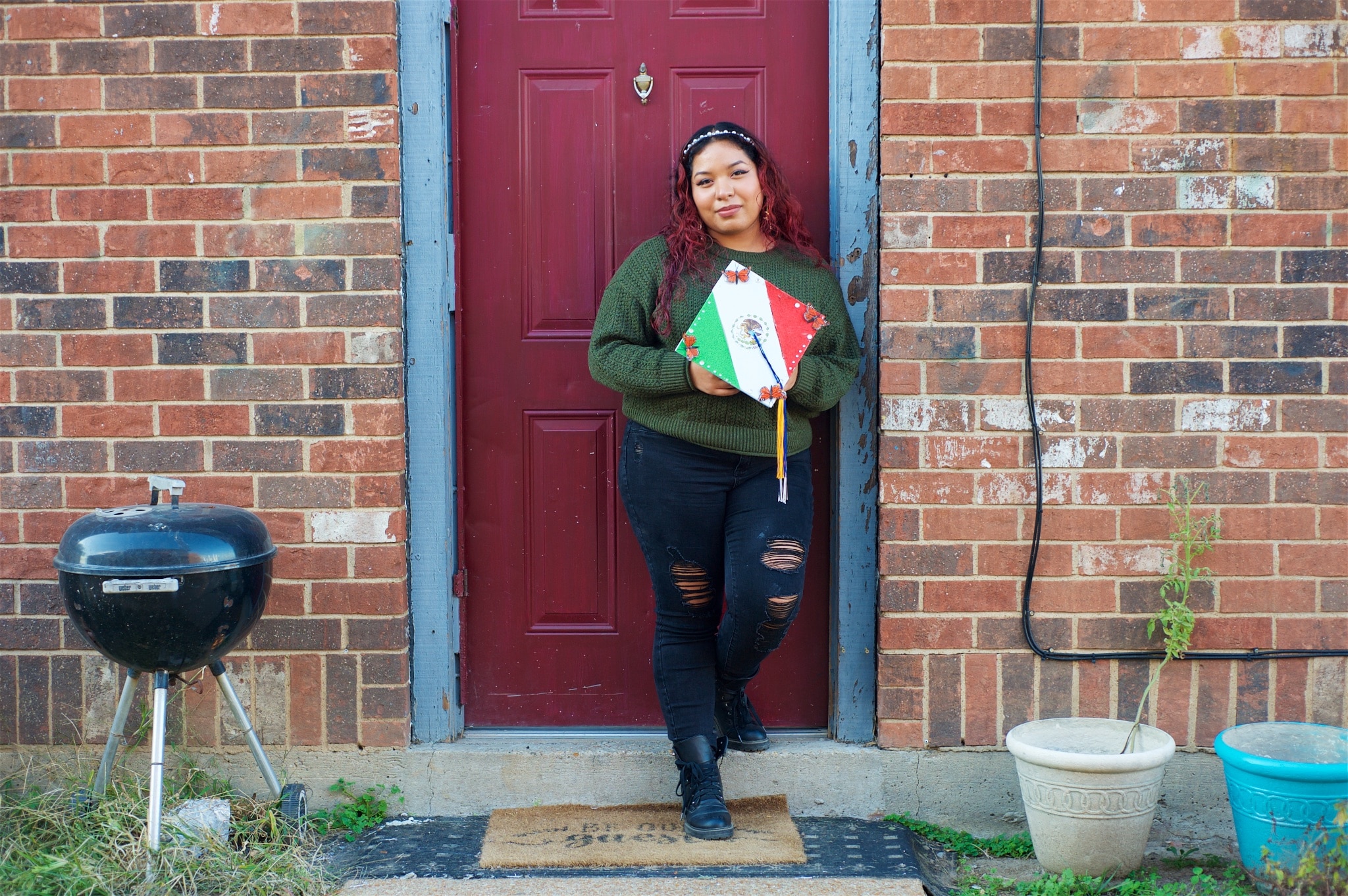
I was not as outspoken in middle school. I just kind of let things happen to me. In middle school and early high school, my mom was in a very toxic relationship with a lot of domestic violence. I didn’t make any decisions. I was just in survival mode. It wasn’t until much later that I realized I have the power to make my own decisions and be there for people who might need help. After high school, I knew I couldn’t go to college yet. But I had to do something to keep myself active. That’s when I started translating.
Part of the reason we were in such a bad situation for so long was because my mom didn’t have the tools to be able to get the help she needed. Specifically, there was a language barrier. My stepdad was Puerto Rican and spoke English and Spanish. He unfairly used that against my mom, like, “You can’t leave me. You don’t even speak English.” I’ve been a part of a few legal custody battles translating for a mother and I thought to myself, “I don’t know where she’d be if she didn’t have a translator right now. Not specifically me, but to have the help she needs to be able to understand what the judge was saying and what the attorneys were saying and what her options are — that is important.” That’s kind of what my mom needed back then. Unfortunately, she did not have that.
The reason my mom and my brother and I were able to get our green cards was that my mom experienced domestic violence from being with a U.S. citizen. It’s not a sure thing that you’ll get approved, so we were still teetering. But, I had just had my quinceañera, so I was 15 and a half when I was able to tell her, “I don’t want him to come back. I don’t want you to be in this situation.” Speaking up for myself and for her, and telling her what I wanted and what I felt like our family needed, she was able to get out of that situation.
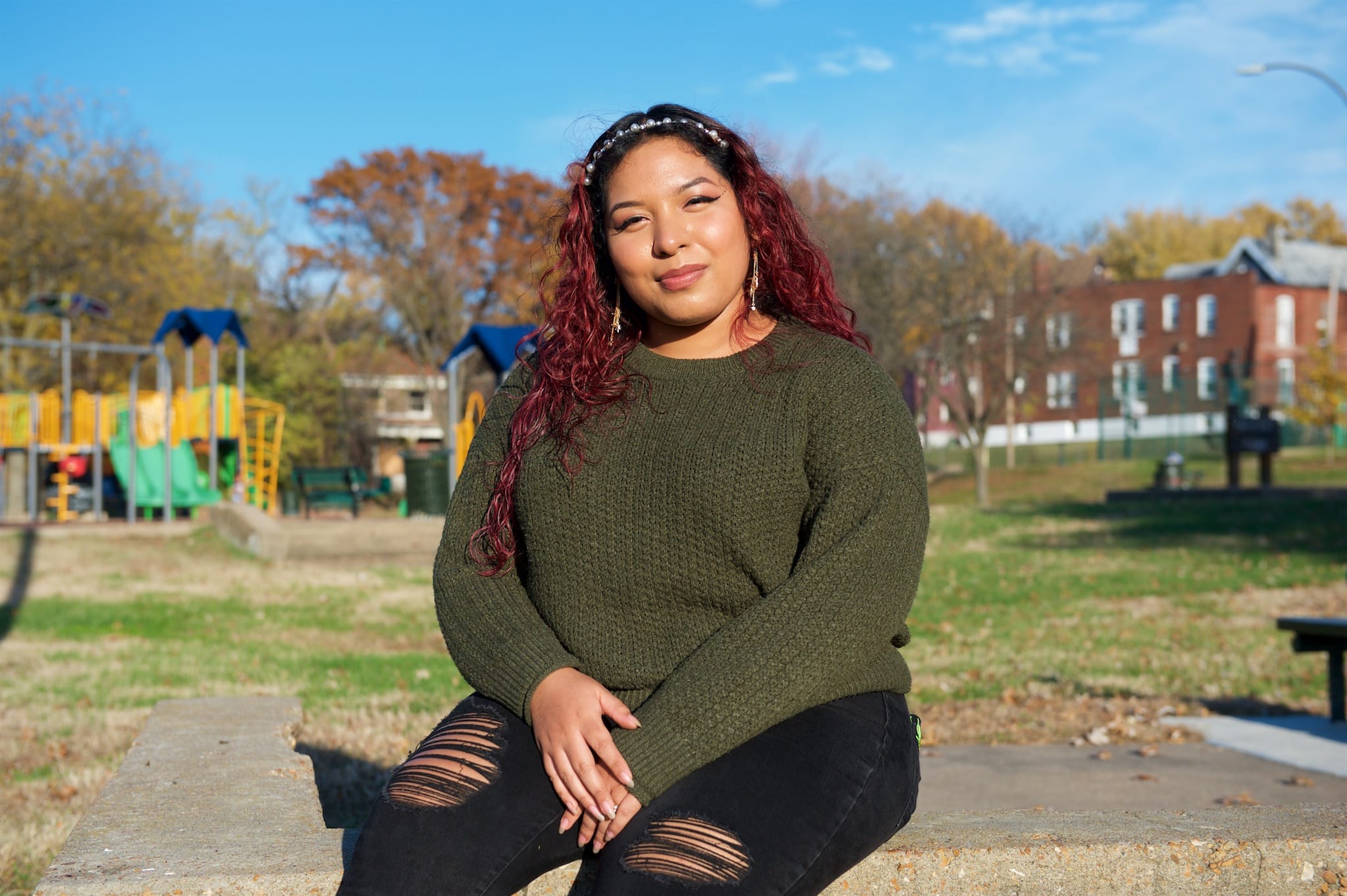
When was the moment you knew being a Navigator was going to be the role for you?
Not that long ago, I felt kind of underqualified. I felt like, “Wow. I’m way out of my league. This is an actual job. My co-Navigators look like they know what they’re doing and I’m just starting college. Am I really the right person for this job?” Our manager gave us an assignment to answer, “What questions should parents ask when touring a school?” And I was like, “Oh, I don’t know what to do.” But I just tried to answer and it was so easy. The question filled itself out, I translated, and I thought, “Oh my God, I can totally do this.”
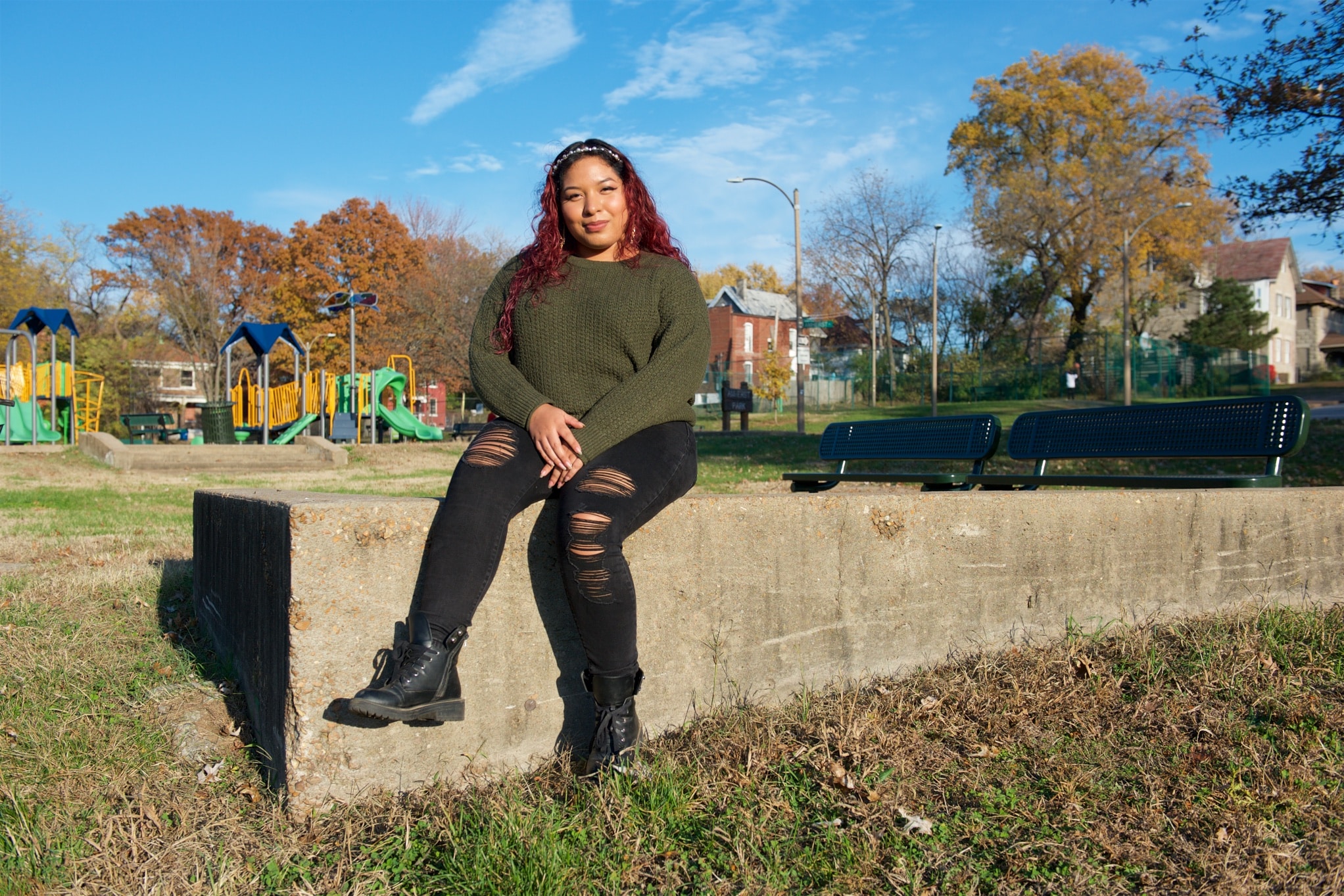
The parents I meet who come to the U.S. with really young kids mostly want them to continue their education. When a lot of people from Honduras and El Salvador were migrating here, there was a special act in place so their children would be able to get green cards as long as they continued their schooling. And a lot of kids didn’t want to. They were 16 and 17 years old, they didn’t know English, they didn’t study much in their country. And when they start their lives here and have the option to have a green card and live here legally, they tell me it’s hard for them. They’re thinking, “I came here to make money. I came to help my little brothers and sisters back home. I can’t just study.” As someone who’s kind of their peer and kind of one step ahead, I talk to them about how important it is to study and how many more opportunities they could have if they just take the time to finish high school.
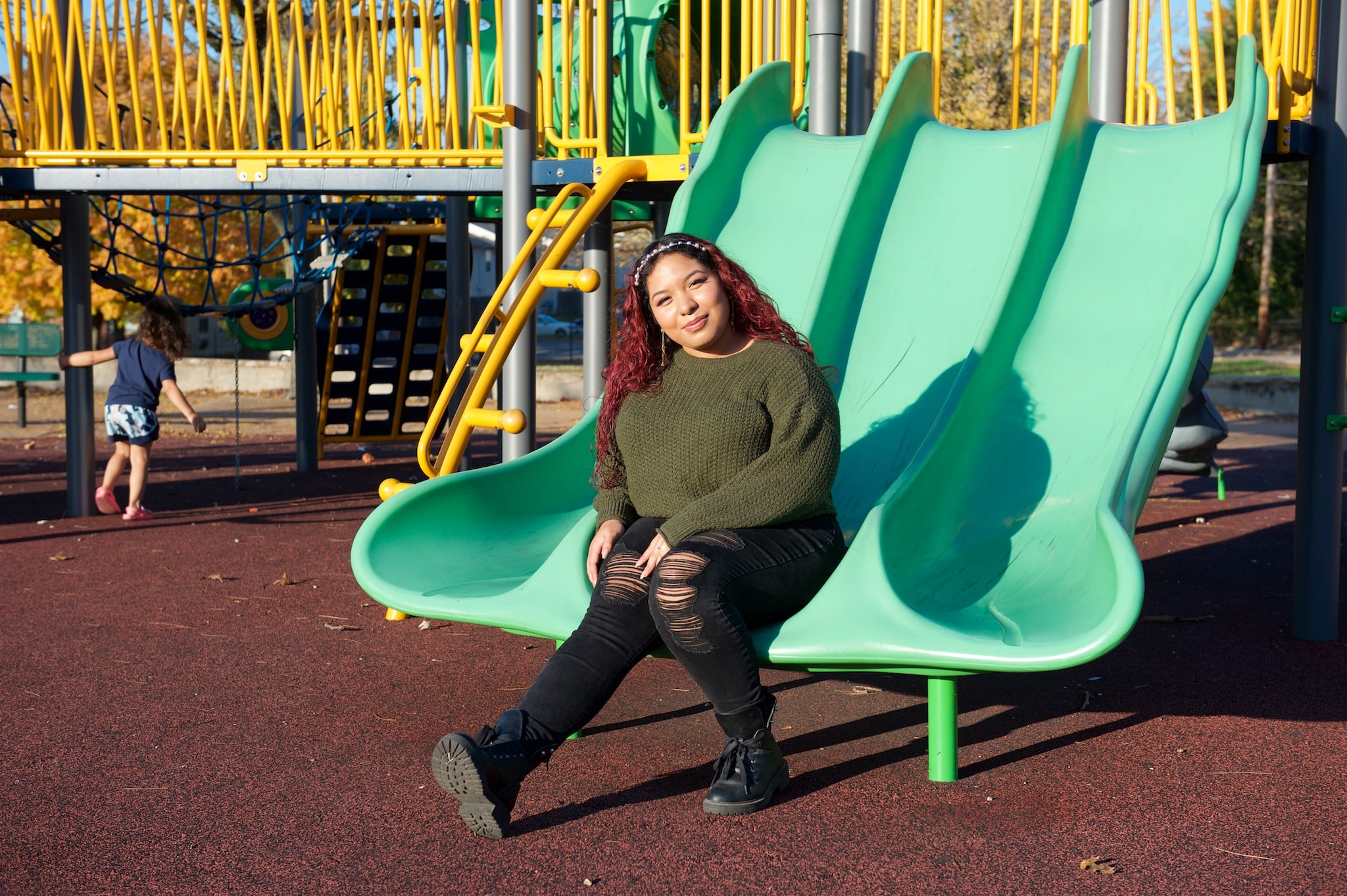
There’s this one family I work with and the mom can’t read or write, so it’s difficult for her to communicate sometimes. WhatsApp has the option where you can just do voice recordings, so she sends me audio messages. And since she speaks another dialect because Spanish is her second language, even her Spanish is a little broken. Well, her daughter is a sophomore in high school and last summer, she wanted to give up. She didn’t want to go back to school. She wanted to start working because she has brothers and sisters back home where they’re from. And just spending time with her meant a lot because I felt like I needed to help her. I felt like she’s my responsibility now. She couldn’t just stop her education. I know her brothers and sisters need her, but she could do so much more if she just gave it three more years.
I see potential in her and I see the way she treats other people. Other people saw potential in me and that’s why I can be where I am now. If they hadn’t, maybe I would have given up a long time ago. That’s why I think this girl needs that extra push to know she can do more. I believe in her. Someone who gave that to me and has continued to is Cecilia Nadal. She ran Gitana Productions which focused on kids in neighborhoods like mine. She also ran a program in Ferguson and one on Cherokee to teach global citizenship by getting kids involved in the arts. I call her my adoptive grandma because I don’t have a grandma here. She’s one of my biggest supporters and she has stuck with me every step of the way.

When my mom took me to the Gitana Productions program the first time, I was such a moody pre-teen, like, “I don’t want to do this. I don’t want to be in the spotlight. I don’t like dancing and acting.” Looking back at it now, that experience helped me so much. I was a pretty shy kid. I wasn’t very outspoken. Being in the performing arts helped me find my voice, not only as who I wanted to be but more with speaking in public and how to be okay with having the spotlight on me.
I got involved with the TRIO program through St. Louis Community College last year, too. And someone helped me so much throughout the college application process from understanding what my FAFSA meant to how to translate that to getting into school. Then he found more opportunities for me to apply to. I also went to Rankin Technical College camps every summer that were paid for through a program. That was helpful to see all the different career options out there instead of just spending time at home. I don’t think I will be an engineer or an architect, but I loved being in those engineering and architect programs because it was fun and a different experience.
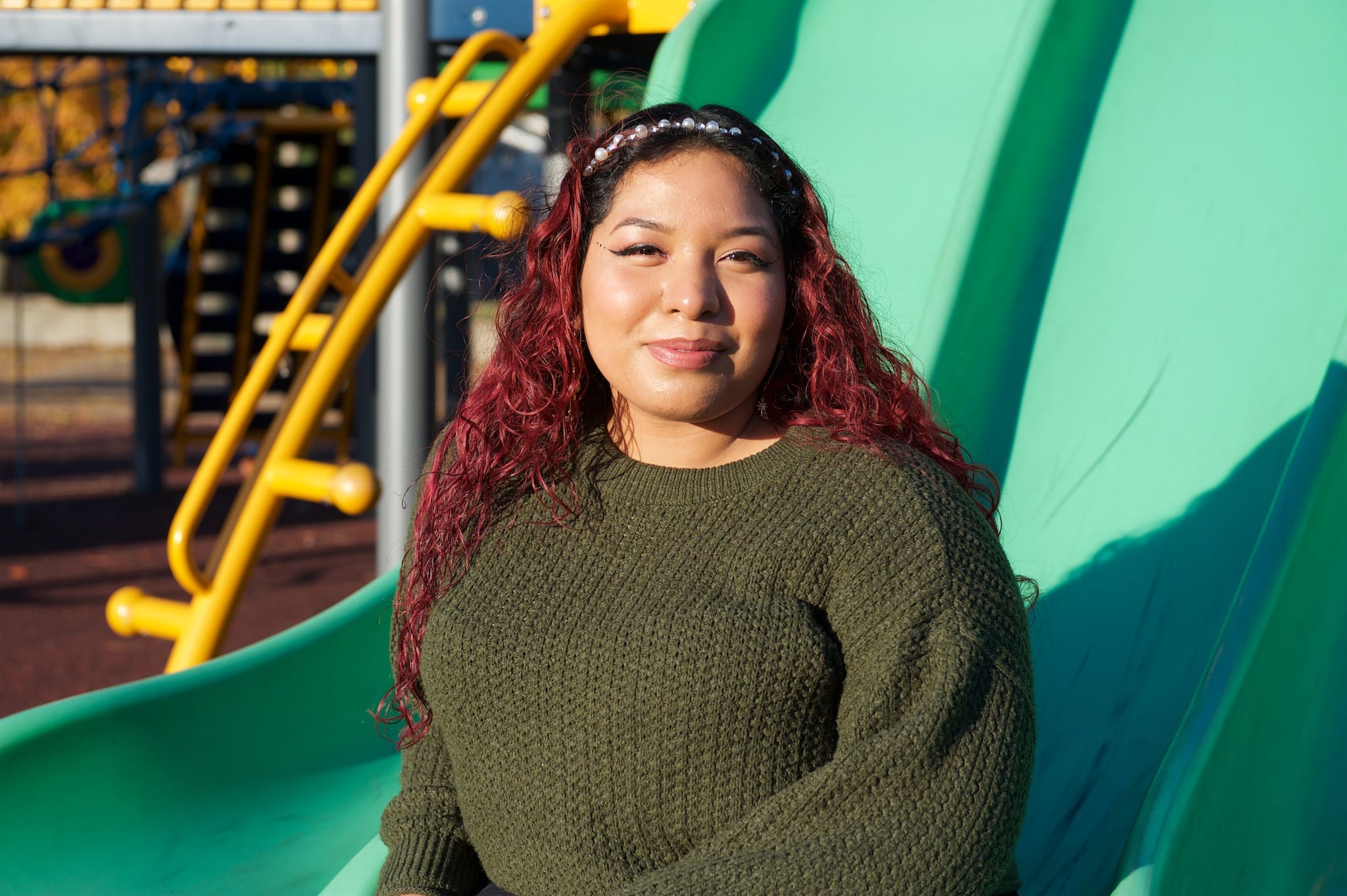
How has the pandemic made things more difficult for students trying to learn?
My neighbor is immunocompromised and has a daughter who is autistic, has ADHD, and can get depressed really easily if she doesn’t have contact with other kids her age or isn’t being stimulated from being taught in person. When schools went online, it was hard for her and her mom. Now the mom sends her daughter to school two days a week just so she can be able to have that connection with other people. And Mom made the decision even though her daughter could risk being infected or carrying something back home.
And with technology, parents are a little frustrated. The mother of one family I helped asked, “How are we going to get the Internet? They gave me a tablet, but I need Wi-Fi. I can’t take my kid to the library every day.” Well, the family was given a phone with a hotspot and I kept trying to explain how it worked. They eventually ended up understanding somewhat, but not fully. I helped as many people as I could. But not everyone is as connected, so I know not everyone got the help they wanted or needed.
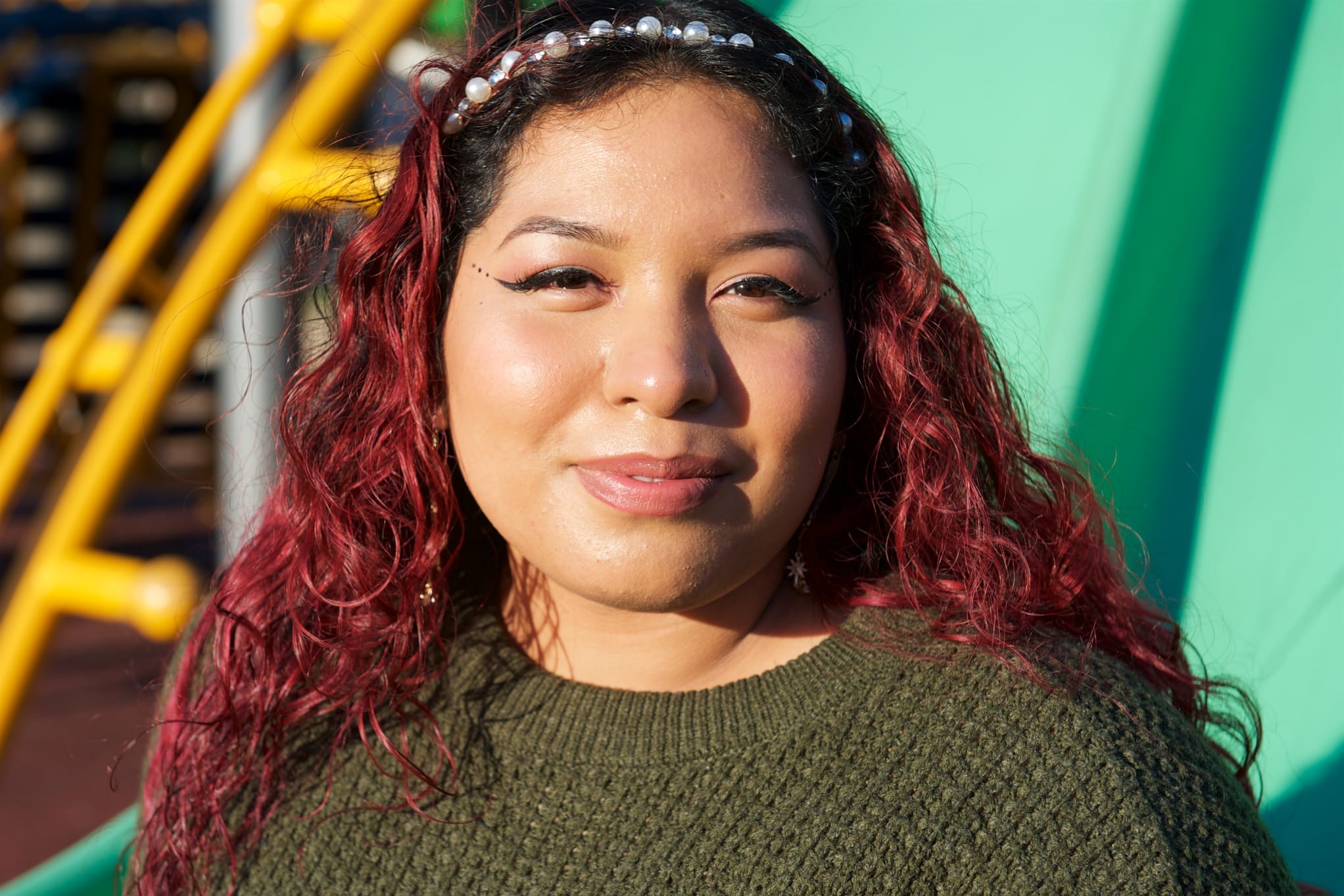
If you would have had access to something like a Navigator from Navigate STL Schools, would anything have changed for your educational experience?
When I was in middle school, I looked into other middle schools by myself because I didn’t like where I was going. I remember I set up a tour for a school and my mom and I didn’t understand enough about how to apply there or what the differences really were between the schools. So I stayed at my middle school and then went to Gateway STEM for high school. My focus is more in art and performing arts. As a kid, I would have enjoyed going to school where that was celebrated.
The Navigate STL Schools program is one step in the right direction so people in situations like I was in don’t continue feeling stuck and discouraged. There’s still more that schools can be doing to reach out to families to make the process easier. Otherwise, students and families will just continue being more discouraged.
Just the thought that I’m helping someone else or making someone else’s ability to choose the right school a bit easier for them is helpful. I also journal a lot. Before, I wasn’t doing it enough. Now, I’m starting to get into it more again. It’s been important for my mental health to make sure I’m not as frustrated as the families are all the time. Because I need to come to them in a patient manner where I can help them understand everything.
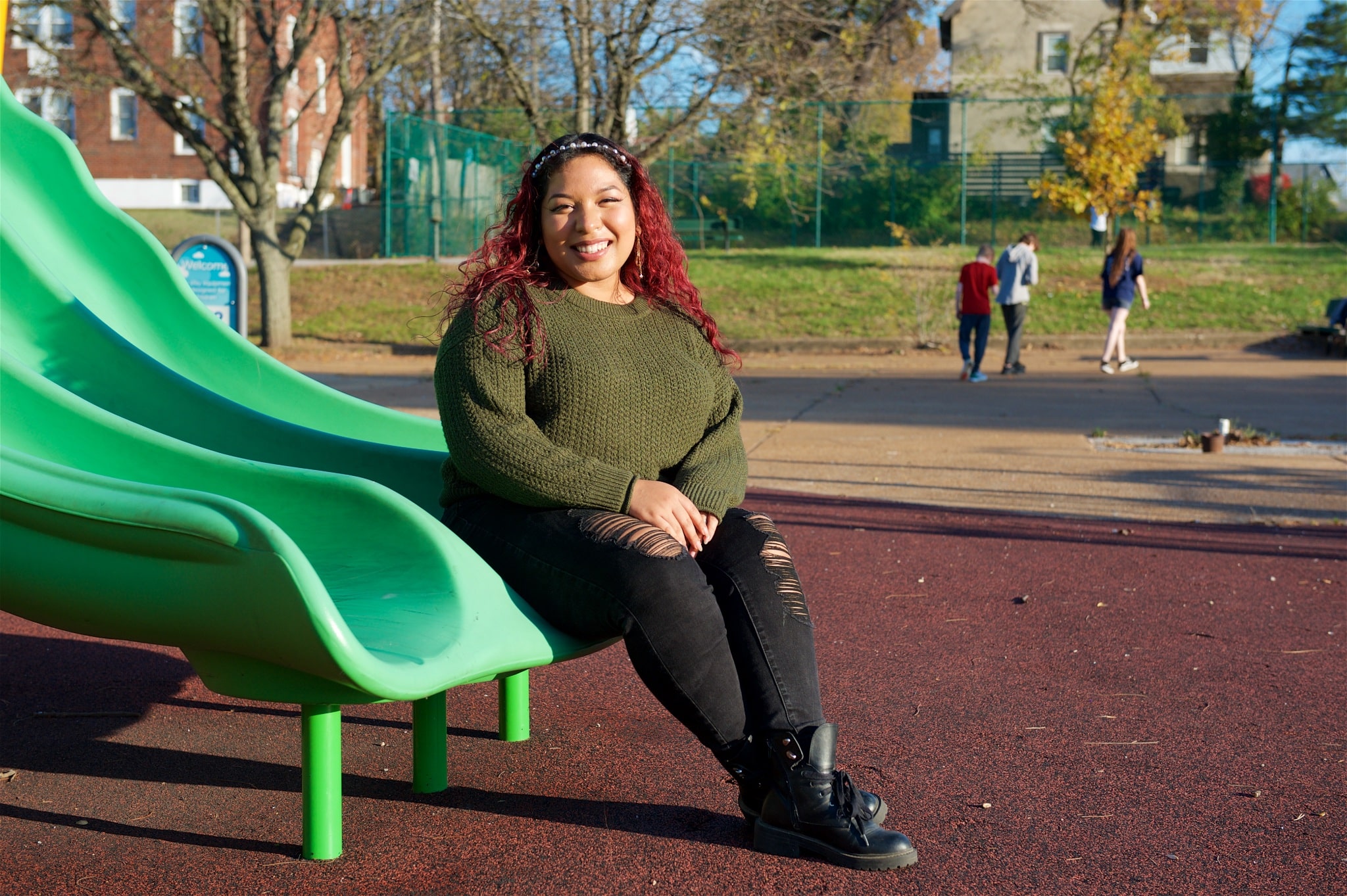
My mom started taking my brother and I to Sunday school every single Sunday when I was like 12. At one point, I started being the Sunday school teacher’s helper and then part-time I was like, “Oh, the teacher’s not here. I’ll just lead the session myself.” When I was young, too, I’d figure, “We’re out of school. It’s summertime! Bring your kids to me and I’ll babysit.” So I would do that for neighborhood kids and people who lived in my apartment building. Where I lived, there was a huge, open patio in the back. So it was easy to go play outside with chalk or a soccer ball and care for a bunch of little ones for a few hours until their parents came back. I was like, “I’m going to be playing with these kids anyway, so let me make some money out of it.” Anything I could do usually revolved around helping out younger children. I’m good at it. And all of those moments have been little stepping stones to becoming a full-blown teacher now.
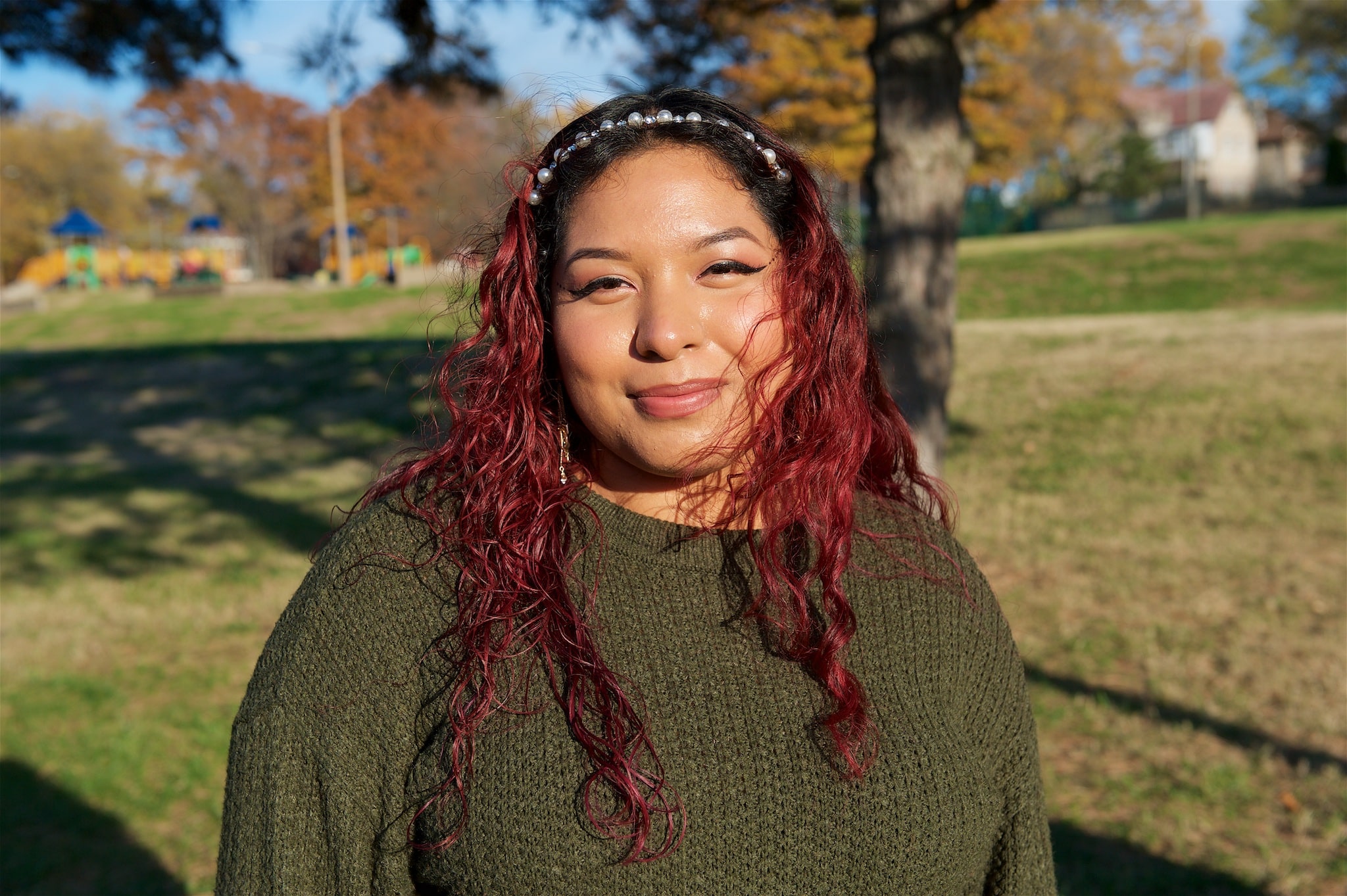
Do kids in your neighborhood come to you looking for advice and asking questions about schools?
Before they did, but not anymore. They’re kind of in their little, teenage, rebellious, preteen, angsty phase right now. But, just the other day, my adult neighbor asked me about what middle schools were good and if I knew anything about the middle school I went to. I was like, “Oh my gosh, that’s where I went.” And it was right when I started working for Navigate STL Schools, so I plugged this in so slyly, too: “Well, if you’re looking for middle schools and you’re transitioning, we have this great new website for you to try out.”
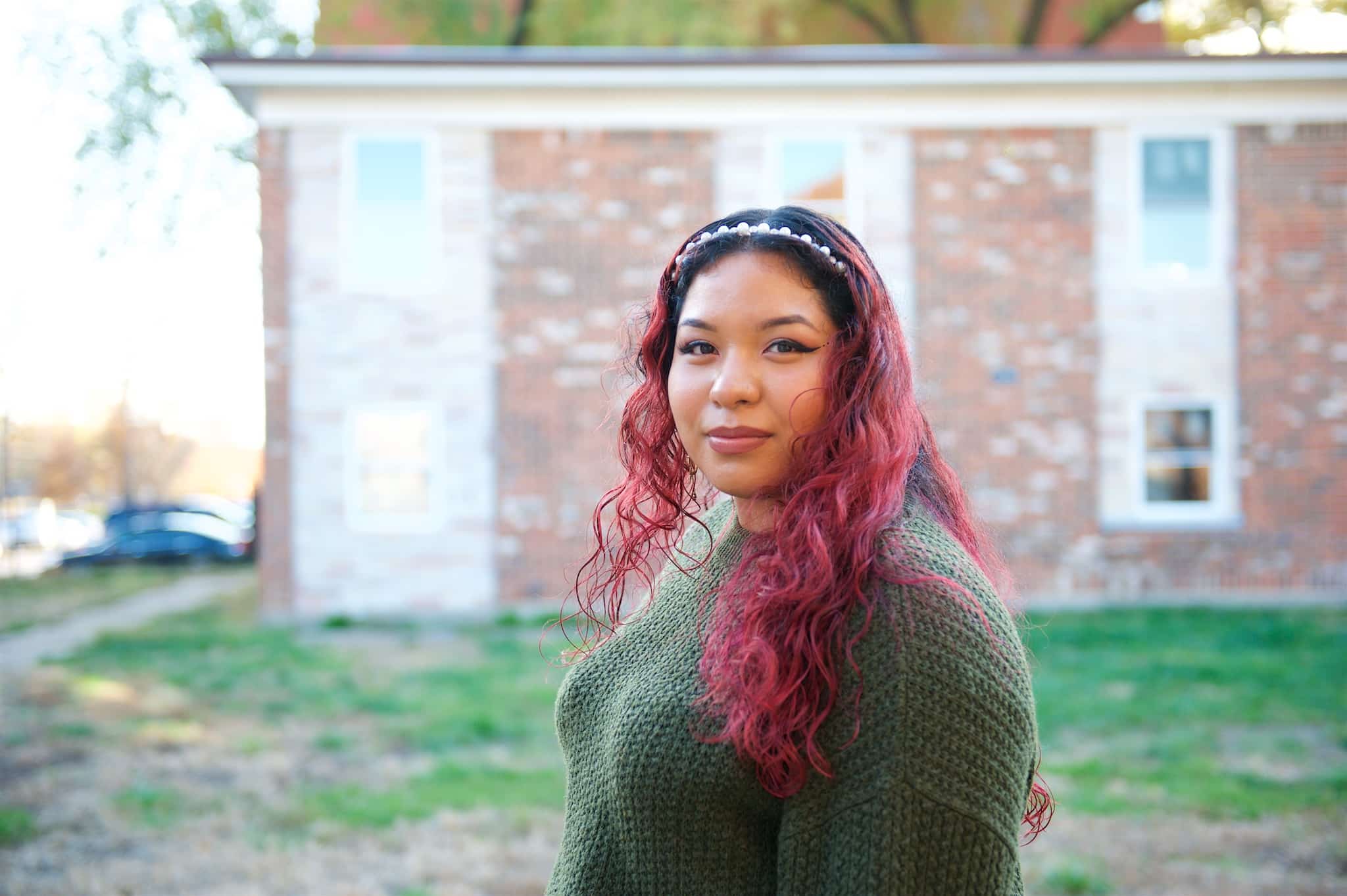
Did you have any fears about taking on the Navigate STL Schools Navigator role?
Yeah, at first I was scared about if my Spanish wasn’t good enough to be able to translate for the parents. And language was a big component as to why I was hired. Sometimes I feel like my Spanish is a little broken because I haven’t learned it formally. I remember at 15, I was forcing myself to read books in Spanish so I could be able to read and write it well enough. I had to take a step back and realize, “I’ve spoken Spanish my whole life. It’s okay. I’ll be able to do it.”
What’s your hope for people to understand about the kids in your community and for anyone who wants to help improve the education system overall?
I would like educators and everyone else to understand that every single child has so much potential. And it doesn’t necessarily have to be in education or by being smart and having good grades in math or science. Not only are we living through a pandemic, but the kids here are going through a lot on a regular basis. They have other lives besides just school. They can’t just focus on school and their homework all the time. Their stories and what they’re living through right now are not as common as most kids. I received so much help and encouragement from others during my educational journey that I just hope I can do the same for the kids I’ve grown up with and the kids who will be in my classroom one day.
– Maria Anaya Pintor, School Navigator, Navigate STL Schools